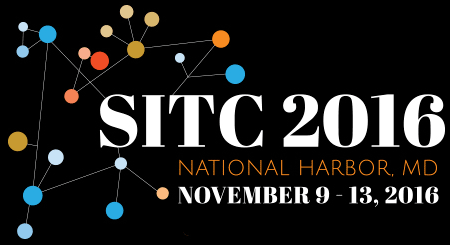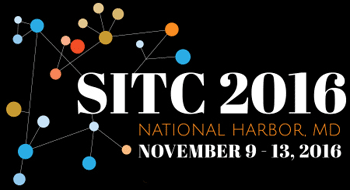31st Annual Meeting Session Descriptions
Adoptive Cellular Therapy vs. BiSpecific Antibodies
Immunotherapies for B cell malignancies have shown impressive responses in numerous clinical trials, providing clear proof-of-principle that these agents are active in patients with relapsed, refractory disease. This session will compare and contrast chimeric antigen receptor based therapies and bispecific antibody based therapies for B cell malignancies. Speakers will also discuss recent progress in optimizing and refining these approaches and will discuss emerging concepts regarding how these new agents might best be incorporated into standard of care.
Clinical Management
Nurse/Pharmacist Track
Advances in oncology drug development have led to the recent approval of novel immunotherapies. Given as monotherapy or in combination with other drugs or cancer treatment modalities, oncology providers must increase their knowledge in immunotherapy, as the mechanism of action, patient education, and adverse event management differs from chemotherapy and targeted therapy.
This session focuses on the clinical management aspects of immunotherapy in oncology. Presentations by advanced practitioners will provide an opportunity for attendees to improve clinical outcomes for individuals receiving immunotherapy through effective patient education, assessment, and management strategies of immune-related adverse events (ir-AEs).
Beyond Single-Agents: The Future of Combination Immunotherapy
Cancer immunotherapies are showing impressive clinical responses and revolutionizing treatment paradigms across a variety of malignancies. Building on the single agent success of these therapies, combinatorial approaches have emerged with the goal to improve clinical responses while also minimizing immune-related side effects. Potential synergistic combinations include immunotherapy combined with conventional therapies (radiation, chemotherapy, and targeted therapies) as well as combinations of immunotherapies to target multiple aspects of the antitumor response. In order to identify patients who will achieve optimal clinical benefit and to minimize unnecessary exposure to toxicities, developing reliable predictive biomarkers will be key to the success of these novel approaches. In this session, topics covering aspects of the development of combination therapy as well as combinatorial strategies currently under investigation in clinical trials will be presented. In addition, issues related to patient selection as well as biomarker development will be discussed with the intent to provide an overview of the current status and future prospects of combination immunotherapy.
Diet, Exercise, Stress and Impact on the Immune System
A growing body of evidence demonstrates that lifestyle factors including psychological and physiological stressors, dietary components and obesity, and physical activity influence cancer risk, progression and mortality. Furthermore, emerging data suggest that these lifestyle factors may be modulating inflammatory mediators and pro-vs. anti-tumor immune mechanisms. This session will highlight new data on stress, diet and exercise, and in particular their influence on tumor progression and anti-tumor immunity in the context of the tumor microenvironment.
Emerging Technologies
The development of emerging technologies promises to enable the continuing rise of cancer immunotherapies. The scope of new technologies is exceptionally broad and ranges from ‘armored’ CAR T cells to bispecific T cell engagers to next generation sequencing to humanized animal models and beyond. This session will focus in particular on multiplexed immunohistochemistry (mIHC) and cancer immunotherapy delivery systems. Regarding the former, the therapeutic benefits now engendered by immune checkpoint inhibitors, such as PD-1, PD-L1 and CTLA-4, fundamentally challenge the strategies used to interrogate such advantages. We must now contend with understanding the contextual interplay between immune cells and tumors cells within a complex tumor microenvironment, in order to more firmly stratify responsiveness. Thus, this session will tackle the complexities associated with mIHC and how this emerging technology is opening up contextual interactions between specific myeloid components and classic Hodgkin’s lymphoma. Regarding delivery systems, engineers and physicians are working side-by-side to construct efficient delivery platforms capable of enhancing antitumor immunity. Unlike traditional delivery of cytotoxic drugs, the delivery of antigens and immunotherapeutics requires intelligent design and a more nuanced approach. These challenges are being met by bringing to bear multidisciplinary efforts in this rapidly evolving field. It’s hoped that by highlighting novel mIHC capacities and novel delivery methods, that this session on emerging technologies will improve the ability to incorporate such capacity in the study of cancer and immunotherapy as it marches toward a cure.
Microbiome and the Impact on Local Inflammation and Host Immunity
With increasing interest in the role of the host microbiome, there is emerging evidence demonstrating the importance of microbiota in modulating inflammation and host immunity. Microbial regulation of local and systemic inflammation and immunity can influence cancer initiation, progression and response to therapy. This session will highlight studies advancing our understanding of the effects of microbiota on host inflammation, immunity, and the efficacy of anti-cancer treatments.
Metabolic and Age-Associated Dysregulation of Anti-Cancer Immunity
The inflammatory response is tightly regulated by a complex cascade of metabolic and genomic signals. Aberrations in these signaling pathways due to aging or metabolic alterations can result in compromised immune function and an impaired ability to mount a response against pathogens as well as cancer. Understanding the mechanisms underlying this dysregulation is essential for developing therapeutic strategies to restore immunity in patients with cancer. Therefore, this session will highlight recent advances surrounding the metabolic and age-related factors involved in the dysregulation of the anti-tumor response. Topics covered will include a discussion of the therapeutic potential of T cells reactive to idoleamine 2,3 dioxygenase (IDO) or programmed cell death ligand-1 (PD-L1) as well as the role of myeloid-derived suppressors cells (MDSC) in the aging and tumor microenvironments.
Promoting and Measuring Anti-Tumor Immunity
With the expanded use of immunotherapeutics such as checkpoint inhibitor monoclonals, vaccines, cellular therapies, and immune modulators in the management of many cancer types, the identification (either prior to therapy and/or early in the therapeutic regimen) of patients most likely to benefit from immunotherapy becomes more important. These studies become more complex when immunotherapeutics are used in combinations and when immunotherapeutics are used in combination with other types of therapies. Both analysis of tumor biopsies as well as an interrogation of peripheral cell subsets are being investigated. This session will deal with numerous approaches of immune analyses, including Elispot, FACS-based, RNA-seq, T-cell receptor and soluble factor assays, and potential correlations of these results with patient benefit.
State-of-the-Art Immunotherapies: Challenges and Opportunities
Immunotherapy has demonstrated activity in almost every tumor type tested, changing the way cancer is treated throughout the world. However, not all patients benefit, and the search for predictive markers of response and mechanisms of resistance will be a major challenge over the next few years. In addition, with a host of new targets and drugs, the rational combination of immuno- oncology agents will be critical. This session will explore opportunities from lab to clinic to better use and evaluate these promising agents.
Tumor Immunology 101
Nurse/Pharmacist Track
This session, presented by leading authorities in tumor immunology and cancer immunotherapy, is specifically designed for nurses, pharmacists, clinical oncologists, and others involved in treating cancer patients with immunotherapy. The presentations provide an overview of basic immunology, tumor immunotherapy principles, and discussion about what is on the horizon for cancer immunotherapy.
Tumor Microenvironment
The function of innate and adaptive immune cells is significantly modulated by the tumor microenvironment. In turn, the phenotype of tumor infiltrating innate and adaptive immune cells create a microenvironment that either supports or depresses an evolving immune response. Structural elements, such as stroma and endothelial vessels supporting tumor growth, are also actively involved in regulating immunity. This session overviews tumor microenvironmental factors important in influencing cancer specific immunity.





Important Dates
Regular Abstracts Published in JITC
November 8, 2016
Late-Breaking Abstracts Published in JITC
December 8, 2016
Thank You, Supporters!
Thank you, SITC 2016 supporters. Because of your generosity, SITC 2016 was a great success!
Interested in supporting other SITC programs? Confirm your support today!


Connect with SITC!